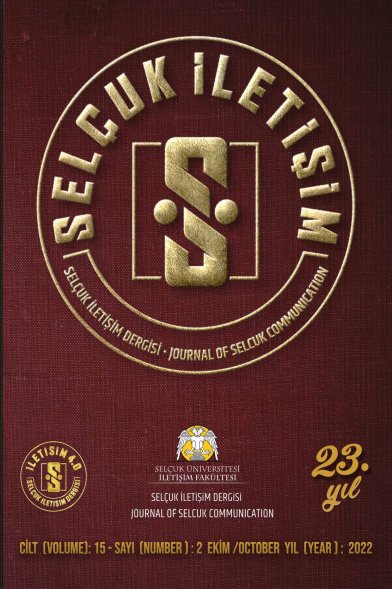PROJE YÖNETİMİNDE PAYDAŞ İLİŞKİLERİNİN ROLÜ VE ÖNEMİ
Proje yönetimi; paydaş ilişkileri; duygusal emek; halkla ilişkiler
-
___
- Abay T E ve Ayan Z (2007) Sivil Toplumdan Proje Öyküleri, Sivil Toplum Geliş- tirme Merkezi, Ankara.
- Barutçugil İ (2008) Proje Yönetimi, Kariyer Yayıncılık, İstanbul.
- EFQM, “Mükemmellik Modeli” (2010) Türkiye Kalite Derneği Yayını, İstanbul.
- European Commission - EuropeAid (2002) Project Cycle Management Handbook.
- European Commission, Project Cycle Management Guidelines (2004) Brussels.
- FAO (2001) Project Cycle Management Technical Guide, Socio-Economicand
- Gender Analysis Programme, United Nations. Grandey A A (2000) Emotion Regulation in the Workplace: A New Way to
- Conceptualize Emotional Labor, Journal of Occupational Health Psychology, 5(1), 95-110. Kusek J Z and Ray C R (2004) Ten Steps to a Results-Based Monitoring and Evaluation System, World Bank, Washington D.C.
- Newton R (2012) Project Management Step by Step, Pearson Education Limited, London.
- Sarı V İ (2010) Proje Döngüsü Yönetiminde Etkililik Değerlendirmesi, DPT Uz- manlık Tezi, Bölgesel Gelişme ve Yapısal Uyum Genel Müdürlüğü, Ankara.
- Tekindağ F C (2005) Proje Döngüsü Yönetiminde Mantıksal Çerçeve Yaklaşımı,
- Sivil Toplum Geliştirme Merkezi (STGM), Ankara. UNDP, “Proje Yürütme Rehberi” (2007) Birleşmiş Milletler Kalkınma Programı, Ankara.
- Yentürk N ve Aksakoğlu Y (2006) Proje Döngüsü Yönetimi I, Bilgi Üniversitesi Yayınları, İstanbul.
- Yayın Aralığı: 2
- Başlangıç: 1999
- Yayıncı: Selçuk Üniversitesi İletişim Fakültesi
VALIDITY AND RELIABILITY STUDY FOR TURKISH VERSION OF COMMUNICATION FUNCTIONS QUESTIONNAIRE
Evrim KUMTEPE GENÇ, Mestan KÜÇÜK
BATI AVRUPA'DA TÜRKÇE MEDYA: ALMANYA, FRANSA VE
BATI AVRUPA'DA TÜRKÇE MEDYA: ALMANYA, FRANSA VE HOLLANDA
SENDİKALARDA YENİ İLETİŞİM TEKNOLOJİLERİNİN KULLANIMI VE ÖRGÜTSEL İLETİŞİM FAALİYETLERİNE ETKİSİ
İLETİŞİM İŞLEVLERİ SORMACASI'NIN TÜRKÇE VERSİYONU İÇİN GEÇERLİK VE GÜVENİRLİK ÇALIŞMASI
ÇEVRESEL AKTİVİZM,HALKLA İLİŞKİLER VE YEŞİL AKLAMA ÜZERİNE KURAMSAL BİR BAKIŞ
ÇOK ÇEŞİTLİ MEDYA ORTAMLARINDA GENÇLERİN GELENEKSEL RADYO DİNLEME EĞİLİMLERİ ÜZERİNE BİR ARAŞTIRMA
